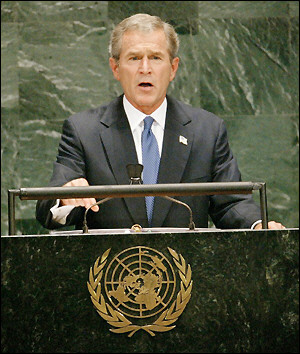 12 Oct 2003 @ 13:42, by Quidnovi 12 Oct 2003 @ 13:42, by Quidnovi
Snapshot from Kevin Brownlow and Andrew Mollo's film (1966), IT HAPPENED HERE, a brilliant and chilling re-write of history.
A man once told me that conquest, a full century or more of war, the spreading of “civilization” by force, and democratization of the world at the point of a gun are the ways in which you “transform a generation” for the better. All I could do at the time was stare in horror at the sickness expressed in that comment.
--- Invictus
Nationalism
The emotional nature of nationalism makes it the most powerful of all ideologies. It affects the individual more deeply and needs less reinforcement than any other political idea system. It unifies people and gives them a common basis for identifying themselves and one another. (L.T. Sargent)
At the same time, nationalism establishes an artificial barrier between people. Human beings are identified on territorial basis and property divisions. Nationalism encourages people to define their interests and values in terms of something less than the good of humanity as a whole. Hence, it tends to work against the ethic of human rights. Because of its emphasis on the property value at the expense of human values, nationalism is firmly rooted in the conservative tradition of the political spectrum.
The Force Theory
That school of thought developed in Germany during the nineteenth century. Georg Hegel (1770-1831) and Friedrich Nietzsche (1844-1900) emphasizing that civilization was created by force (historically, the natural evolution of conquest and the forceful imposition of the strong over the weak) argued that force was not something to be avoided or looked at as something "evil". On the contrary, it was the primary value in society. It was its own justification.
Students of Hegel and Nietzsche have argued that the state is the most powerful form of human association. As such, it is above any ordinary moral or ethical restraint, and it is greater than any individual. It is not limited by something as insignificant as the individual's rights.
According to force theorists, the weak should be ruled by the strong. By institutionalizing the power of the strong over the weak, the state simply arranges affairs as they should be.
The Bush Doctrine
Rebuilding America's Defenses: Strategies, Forces And Resources For A New Century (pdf file – 90 pages), a blueprint drawn up for Dick Cheney (now vice-president), Donald Rumsfeld (defense secretary), Paul Wolfowitz (Rumsfeld's deputy), George W Bush's younger brother Jeb and Lewis Libby (Cheney's chief of staff), was written by the neo-conservative think-tank Project for the New American Century (PNAC) in September 2000.
The text advocated taking military control of the Gulf region whether or not Saddam Hussein was in power.
It says: "The United States has for decades sought to play a more permanent role in Gulf regional security. While the unresolved conflict with Iraq provides the immediate justification, the need for a substantial American force presence in the Gulf transcends the issue of the regime of Saddam Hussein."
The PNAC document supports a "blueprint for maintaining global US pre-eminence, precluding the rise of a great power rival, and shaping the international security order in line with American principles and interests".
The report describes our armed forces abroad as "the cavalry on the new American frontier". The PNAC blueprint supports an earlier document written by Wolfowitz and Libby that said the US must "discourage advanced industrial nations from challenging our leadership or even aspiring to a larger regional or global role".

U.S. President George W. Bush addresses the United Nations (UN) General Assembly
As the Washington Post recently pointed it out, it is little wonder then that the international community is not seduced by Bush's refusal to dilute the present monopoly of power over the occupation administration, the reconstruction program or the contracts that have been awarded almost exclusively to US firms.
In London, the Guardian newspaper said "Mr. Bush had an opportunity to build bridges---and chose instead to burnish his self-image as the square-jawed, undaunted Captain Marvel of the fight against evil. It was thus an opportunity lost (...) Some Americans may find reassurance in this robustly simplistic analysis. But the rest of the world will look on uneasily, as before."
============================================================================================
Related article: From Republic to Empire (Roger Morris)
Shortly before he died in 1989, the eminent American writer Robert Penn Warren, author of All The King's Men, a novel about a democratic demagogue and dictator, was asked if he foresaw another president with too much power.
"Well, it'll probably be someone you least expect under circumstances nobody foresaw," he said. "And, of course, it'll come with a standing ovation from Congress."
|
|
 12 Oct 2003 @ 13:42, by Quidnovi
12 Oct 2003 @ 13:42, by Quidnovi